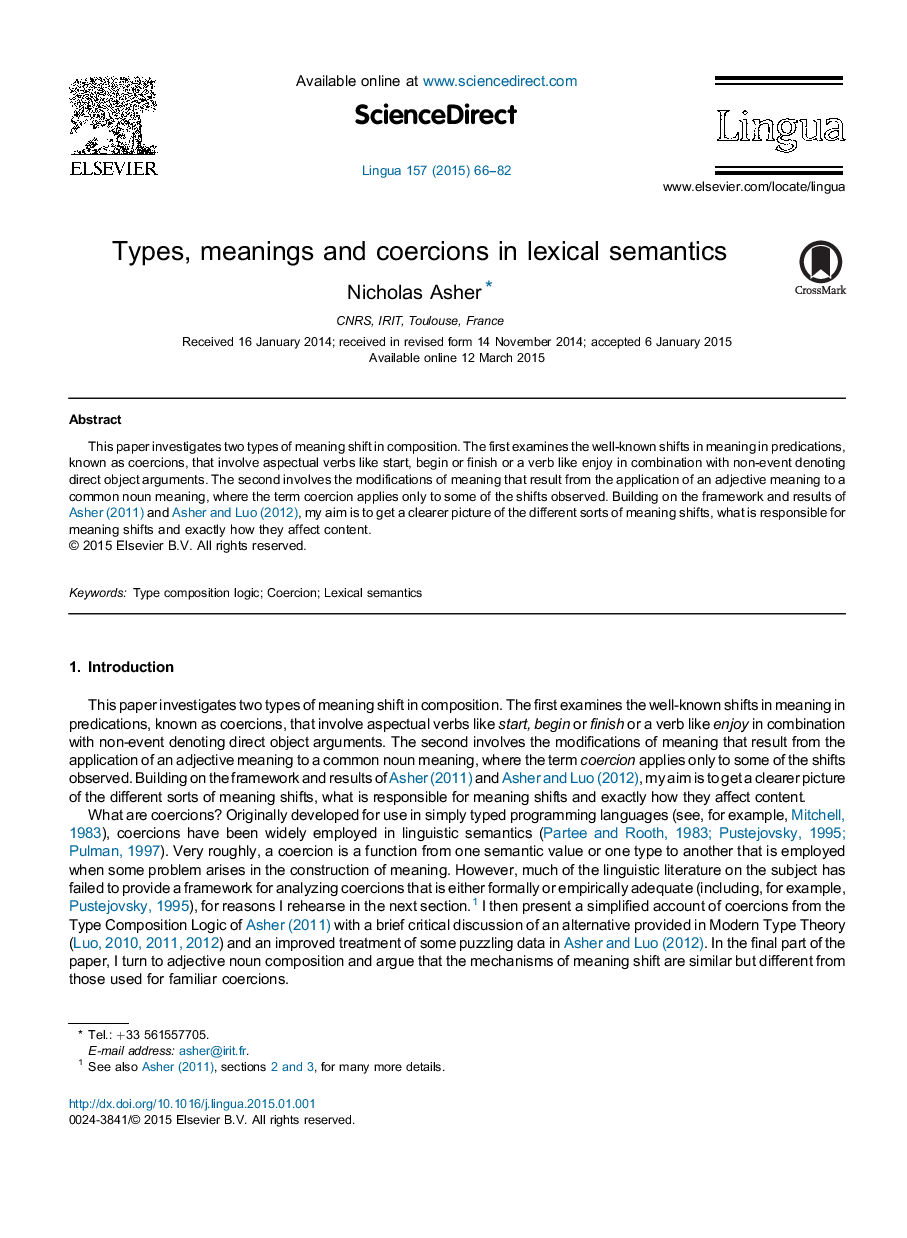| Article ID | Journal | Published Year | Pages | File Type |
|---|---|---|---|---|
| 935612 | Lingua | 2015 | 17 Pages |
•Compares and contrasts coercions with other forms of meaning modification.•Uses as data verbal coercions and adjective noun combinations.•Gives a simplified introduction to the formal theory of Type Composition Logic for coercions.•Examines in detail cases of co composition with adjective noun combinations.
This paper investigates two types of meaning shift in composition. The first examines the well-known shifts in meaning in predications, known as coercions, that involve aspectual verbs like start, begin or finish or a verb like enjoy in combination with non-event denoting direct object arguments. The second involves the modifications of meaning that result from the application of an adjective meaning to a common noun meaning, where the term coercion applies only to some of the shifts observed. Building on the framework and results of Asher (2011) and Asher and Luo (2012), my aim is to get a clearer picture of the different sorts of meaning shifts, what is responsible for meaning shifts and exactly how they affect content.
